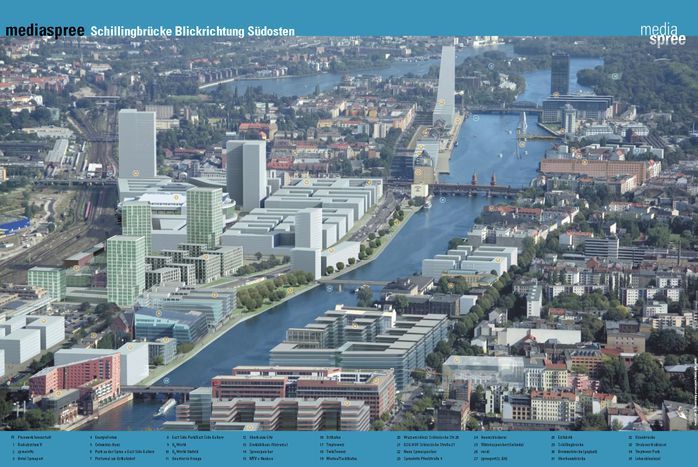
‘Media Spree’ on Berlin’s river: swim next to offices
Published on
Translation by:
 Olia Yatskewich
Olia Yatskewich
Access to a part of the river Spree was blocked by the Berlin Wall for almost half a century. Today, twenty years after its deconstruction, capitalists plan to block it again
Media Spree is the name of the construction project related to the river Spree which flows through the German capital. It’s also a name which can make Berliners furious. A proximity to the main train station and low prices (compared to western Berlin) are only two out of many reasons that are attracting investors. Here, next to the longest fragment of the preserved wall, the construction of the O2 arena is taking place at an estimated cost of 165 million euros. It will be one of the world’s most modern stadiums, able to host 17, 000 people.
‘Sexy’ immigrants
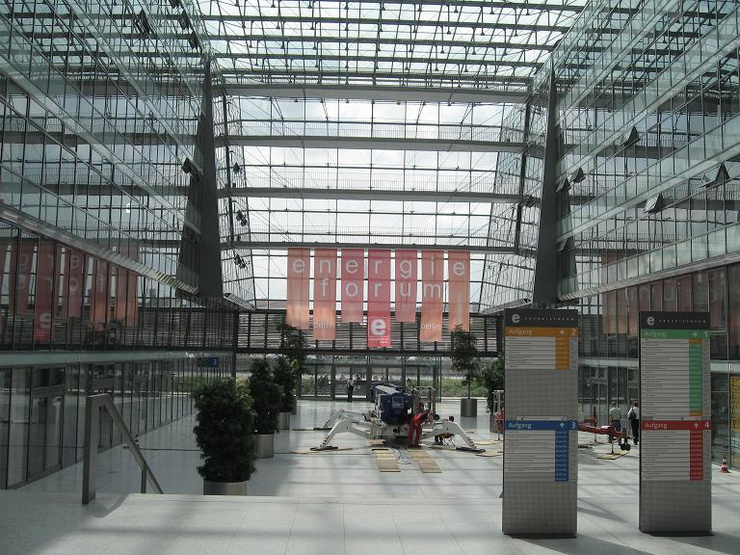
Christian Meyer, director of Media Spree, clarifies the aim of his association. ‘We are doing a lot to promote this neighbourhood. MTV is amongst one of our clients, for instance. We want to have attractive and young tenants who watch MTV and Viva!, and can be defined as ‘sexy’.’
For a long time though, the popular district of Kreuzberg was the opposite of ‘sexy’, mainly due to post-war criterions. After the second world war, the government implemented very low rents in the area to bring more people to this part of the city. It attracted mainly immigrants (according to 2006 data, 31.6% of inhabitants did not have German citizenship), poor students, artists, squatters and punks. After the fall of the Berlin Wall, Kreuzberg reappeared in the city centre. Since 1989, the number of residents doubled as the area became more fashionable. Investors realised that this area might bring in a lot of money - an ideal place for new construction.
‘Flood Media Spree!’
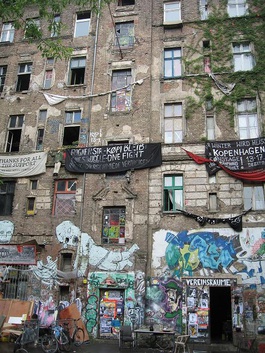 Inhabitants of one the oldest squats in Berlin, 'New Yorck im Bethanien' (the name comes from the old hospital Betanek located on Yocrk Street 59), do not welcome these changes. They started a new initiative known as ‘Flood Media Spree!’, aimed at preserving buildings from privatisation. ‘We started our protest in 2005 and we are still struggling,’ explains Carsten Joost, representative of the organisation. ‘We have collected enough signatures to initiate a referendum regarding this issue. Media Spree will completely change the area. The project represents the interests of big companies and does not mind the people who have been living here all their lives.’
Inhabitants of one the oldest squats in Berlin, 'New Yorck im Bethanien' (the name comes from the old hospital Betanek located on Yocrk Street 59), do not welcome these changes. They started a new initiative known as ‘Flood Media Spree!’, aimed at preserving buildings from privatisation. ‘We started our protest in 2005 and we are still struggling,’ explains Carsten Joost, representative of the organisation. ‘We have collected enough signatures to initiate a referendum regarding this issue. Media Spree will completely change the area. The project represents the interests of big companies and does not mind the people who have been living here all their lives.’
However, the protest is not the organisation’s only activity. ‘We tend to inform residents about the changes in the area. The more people know, the higher chances they will take some action.’ And those who stay in the apartments will face higher prices for rent and bills. Carsten worries about the locals. ‘Whilst artists can always find an agreement with companies, what will happen to immigrants? Nobody will take care of them.’ However, Joost does not have any illusions about the success of this campaign. ‘We won’t win as we live in a capitalist society and only the strongest win. But we are going to continue the struggle and try to get more space.’ There should be no office spaces in the area fifty meters away from the river bank, only bicycle lanes and ‘community space'.
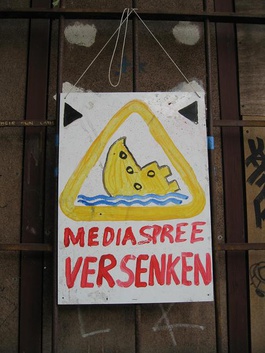 But investors do not want to agree with such a waste of space. ‘We cannot stop it,’ says Ortwin Rau, the owner of the ‘Yaam' bar over Spree. Yaam is a renowned meeting point of cross cultures, African markets, hip-hop parties and exhibitions. From the terrace you can enjoy a view of the river, the O2 stadium under construction and the energy forum office, the headquarters of Media Spree. ‘They are nice people, and it’s not their fault they have this job. They have a different vision and live in a different world,’ he says about his neighbours. He talks pretty calmly about the project which can shut down Yaam. ‘What can we do? They have the right, and we can only try to criticise local politicians.’ Yaam was first opened in 1994 and this is not the first time they have had to relocate. ‘I just want to get something in return.’
But investors do not want to agree with such a waste of space. ‘We cannot stop it,’ says Ortwin Rau, the owner of the ‘Yaam' bar over Spree. Yaam is a renowned meeting point of cross cultures, African markets, hip-hop parties and exhibitions. From the terrace you can enjoy a view of the river, the O2 stadium under construction and the energy forum office, the headquarters of Media Spree. ‘They are nice people, and it’s not their fault they have this job. They have a different vision and live in a different world,’ he says about his neighbours. He talks pretty calmly about the project which can shut down Yaam. ‘What can we do? They have the right, and we can only try to criticise local politicians.’ Yaam was first opened in 1994 and this is not the first time they have had to relocate. ‘I just want to get something in return.’
Berlin’s contra image
'Media Spree is investor-oriented and won’t leave any space for creativity’
Kristien Ring, representative of the German architecture centre, is very sceptical about the project. ‘This is just one of these fast developing areas in the very centre of Berlin, next to Alexanderplatz. It has a huge potential. Media Spree is not the best possible project. First of all, this area has an excellent geographical location. It should offer something interesting for inhabitants. Unfortunately, Media Spree is investor-oriented and won’t leave any space for creativity.’
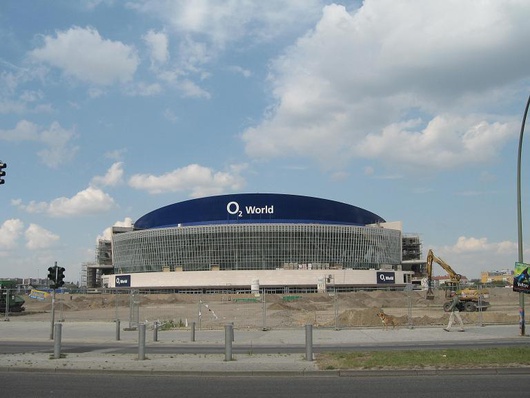 As investors continue the construction process, the rhythm is still uncertain, dependant on the results of soil investigation. ‘There is no debate whether buildings can be owned by few proprietors. Besides, it lacks green zones on the river bank.’ Ongoing projects include the fact that the river will be cleaned by 2011 to permit swimming. But how can you swim next to offices? Kristien Rong argues that 'this project cannot be just space for different companies’ investments. There should be balance between development and preservation of space for citizens. It is not possible to construct just business space on the river bank and leave the area lifeless. This contradicts everything that symbolises Berlin.'
As investors continue the construction process, the rhythm is still uncertain, dependant on the results of soil investigation. ‘There is no debate whether buildings can be owned by few proprietors. Besides, it lacks green zones on the river bank.’ Ongoing projects include the fact that the river will be cleaned by 2011 to permit swimming. But how can you swim next to offices? Kristien Rong argues that 'this project cannot be just space for different companies’ investments. There should be balance between development and preservation of space for citizens. It is not possible to construct just business space on the river bank and leave the area lifeless. This contradicts everything that symbolises Berlin.'
Translated from Kontrowersyjny projekt Media Spree


